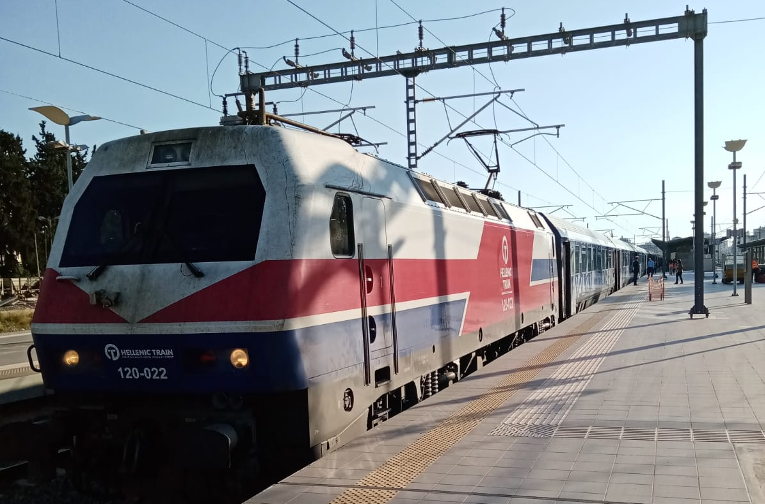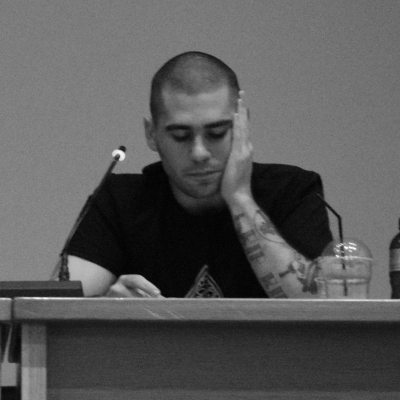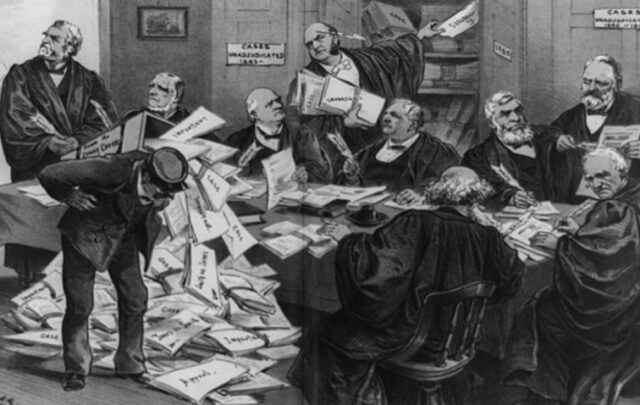On 28th of February 2023, a head-on collision occurred between two trains in the Thessaly region of Greece, killing at least 57 people, making it the deadliest rail disaster in Greek history.
And from the very beginning a wave of outrage was felt all over the country. Protests and demonstrations are held on a daily basis, with some of them being the largest in recent times. Especially massive so far was that of 8th of March, when a national 24-hour strike coincided with women’s demonstrations. According to different estimations there were somewhere from 60 000 to 100 000 people in the city of Athens on that day alone, with mobilizations in more than 80 other Greek cities.
The reaction by the State and its lackey mass media was as what could have been expected – a lot of police repression against protesters, while the media loyal to the ruling hard-right New Democracy party try to omit the systemic element that has led to the tragedy and put all the blame on individual railway employees. This is a well known tactic that they have employed also in the past.
There are several systemic components that led to this disaster. On the one hand, there is the recent privatization by the private operator Hellenic Train. On the other, there was the corruption and sluggishness of the Greek state bureaucracy that, even after the privatization, retained management of the infrastructure through the state-owned OSE. And all these factors were made much worse after years of austerity enforced by EU technocrats and the IMF.
While State and private bureaucracies have left this crucial social and ecological public infrastructure to decay, despite the deepening societal and environmental crises, there were the workers who have been alerting for a long time to the poor condition of the railway system. They have been taking different actions to prevent the forthcoming tragedy, such as going on strike to demand safety improvements. But to no avail, as the management was not prone to listen.
And this is exactly what frustrates the Greek society: the danger was known for a long time in advance but those with power had other priorities. And this is the main problem of all spheres of modern life – they are structured in such a way that they take any decision-making power away from those directly concerned and affected, on both a social and ecological level, and vest it in small managerial elites that only care for making a profit and maintaining their privileged position. If anything, this case of the railway collision shows us that if the workers could take and implement decisions – without the approval of managerial bureaucrats or private investors – then the tragedy was most probably going to be avoided.
Bureaucracy, in all its forms (including the dominant capitalist one!) is as David Graeber insisted in his book “Utopia of Rules“, a way of organizing stupidity since it’s characterized by extremely unequal structures of imagination, which exist because of structural violence . Time and again we see just how dysfunctional State and private bureaucracies are: among others, they have spearheaded us towards a climate disaster of an existential character.
Fortunately there are voices, such as those of the political collective Aftenergeia, that advocate for a much needed alternative to the dominant forms of management and ownership: one that is rooted in popular self-management and socialization. One that is based in workers running themselves, via assemblies, the functioning of such crucial infrastructures, while the broader society contributes through popular committees. This is a much more rational model that will give power to those whose very lives depend on it. Nothing short of implementing in practice the slogan “Lives over Profits”.
We cannot have illusions: this cannot be done within the parameters of the Capital-Nation-State complex. A major social change is urgently needed, one based on total political equality and direct participation, that requires moving beyond statecraft and capitalism. And such change can emerge only from popular mobilizations and self-organization – just like the one we have been seeing since the deadly railway tragedy of the 28th of February.
It is up to the people whether they will alter the current situation or will allow a completely bankrupt system to lead us to a societal and ecological collapse.
Teaser photo credit: One of the Siemens Hellas Sprinter locomotives involved in the accident in Athens Central Station three months before the crash. By NikolasSkevis1 – Own work, CC BY-SA 4.0, https://commons.wikimedia.org/w/index.php?curid=129289024






